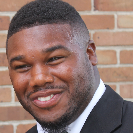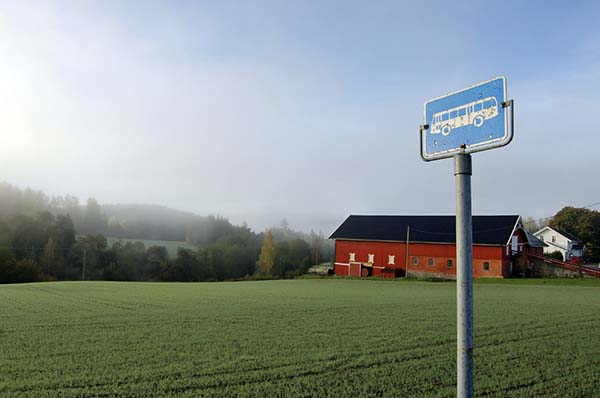[youtube_embed source=”A3E73ixY6dg” caption_title=”Watch the video” /]
Follow along with the event by looking at these documents:
Speakers and Sponsors: ARO ROY Final Handout
Powerpoint Slides: Event Slides
PDF of the Coeur D’Alene Tribe Pipeline
The good news? The number of Opportunity Youth – 16-24-year-olds who are not in school, not working, and disconnected from the people, networks and employment they need to prosper – has declined in the United States in recent years. The challenging news? Nearly five million – about one in every eight young people – are still disconnected in America. And the rate in rural counties (20%) far exceeds that in urban (14%) and suburban (12%) counties.
ARO’s March panel highlighted three programs – from Appalachia, the Mississippi Delta, and the Tribal West – that are successfully moving Rural Opportunity Youth into career training, higher education, and employment in multiple sectors. Watch the video to learn how rural communities are innovating to make these young people realize their potential, advance their livelihoods, and contribute to their communities and the nation’s future.
The Innovators

Karen Jacobson
Executive Director, Randolph County Housing Authority (RCHA)
Elkins, West Virginia
What’s a housing authority got to do with helping disconnected youth get ahead? In north central West Virginia, RCHA is one of multiple sites across the nation running a rural YouthBuild program, where low-income young people learn construction skills to help build affordable housing, community centers and schools. But RCHA did not stop there. Digging into housing and transportation data revealed a coming boom: The County’s senior population (age 65+) was about to double. So RCHA partnered with the local hospital and health care providers to organize another career pathway – a successful medical-prep program that trains local opportunity youth (or as Karen puts it, “the kids who are staying”) for in-demand entry-level jobs in medical care.
 Mable Starks
Mable Starks
President and CEO, Mississippi Action for Community Education (MACE)
Greenville, Mississippi
“Most of our disengaged youth think we don’t see them.” With that realization, Mable Starks and her team at MACE in west central Mississippi reach beyond their successful YouthBuild program to “…use the power of community to co-create,” as Mable puts it. Partnering with Rural LISC though their Go Youth Initiative*, MACE started serving youth in more counties, developed strategies to work with youth aging out of foster care, and began to partner with large regional employers – like Entergy and Uncle Ben’s – that are having difficulty replacing a retiring generation of workers. Now companies are beginning to come to them to prepare youth for better-paying careers in welding and other fields.
*Rural LISC’s Go Youth collaboration with MACE has received support from the Aspen Institute’s Opportunity Youth Incentive Fund.
 Deontay White
Deontay White
Construction Trainer, MACE YouthBuild Program
Deontay White grew up in Ruleville, a small town in Sunflower County, Mississippi – and the home of civil rights leader Fannie Lou Hamer. After beginning in YouthBuild, Deontay left for a job at a local hospital, only to realize he could not move up any promotion ladders without a high school diploma. He came back to MACE to get his GED – and was so successful that MACE snagged him for an open position as a construction trainer in its program.
 Shawna Campbell-Daniels
Shawna Campbell-Daniels
State Tribal Education Partnership (STEP) Manager, Coeur d’Alene Tribe Department of Education, Plummer, Idaho
How do we manage students to advance from birth through their PhD? That, along with grim local crime and dropout rates, was the question that motivated the Coeur d’Alene Tribe Education Department leaders to look at everything happening with youth as a “system” and then flip the tables. Rather than “having education happen to us,” they wanted tribal members to guide education. The result is what they call the “pipeline” – a framework with 15 segments that charts all the programs and support that can help keep young people in the Tribe and in the local public schools on track, and less likely to drop out. Key to their effort is the consistent collection and reporting of youth progress data starting at birth – which allows them to gauge success, find gaps and ruptures, and engage partnerships to repair and restore the system. One result – a significant increase in local youth enrolled in two-year and four-year degree programs.
The Research
 Andrew Schaefer
Andrew Schaefer
Vulnerable Families Research Scientist
Carsey School of Public Policy, University of New Hampshire
Andrew will set the stage by providing national data on the incidence and conditions surrounding opportunity youth, with a special focus on opportunity youth in rural places. Andrew’s work at Carsey focuses on poverty, the social safety net, and women and work. Andrew is currently working on projects exploring counties with high child poverty and the economic conditions of immigrants in rural places.
Our Moderator
 Kathy Moxon
Kathy Moxon
Director of Rural and Native Initiatives for YouthBuild USA
Like many people in Rural America, Kathy Moxon, a resident of Humboldt County, California, wears many hats. She is currently Director of USA Rural and Native Initiatives for YouthBuild USA, and helps lead Redwood Coast Rural Action, a four-county community leadership network working together to improve prospects for local people, place and economy in the region. She advises the Del Norte County and Tribal Lands Opportunity Youth Initiative – another grantee of the Aspen Institute Opportunity Youth Incentive Fund. A former director of community strategies for the Humboldt Area Foundation, Kathy has also served as the chairperson for the California Stewardship Network, and has spoken across the nation on issues of rural economic and community development.Follow along with the event by looking at these documents:
Speakers and Sponsors: ARO ROY Final Handout
Powerpoint Slides: Event Slides
PDF of the Coeur D’Alene Tribe Pipeline
The good news? The number of Opportunity Youth – 16-24-year-olds who are not in school, not working, and disconnected from the people, networks and employment they need to prosper – has declined in the United States in recent years. The challenging news? Nearly five million – about one in every eight young people – are still disconnected in America. And the rate in rural counties (20%) far exceeds that in urban (14%) and suburban (12%) counties.
ARO’s March panel will highlight three programs – from Appalachia, the Mississippi Delta, and the Tribal West – that are successfully moving Rural Opportunity Youth into career training, higher education, and employment in multiple sectors. Hear how rural communities are innovating to make these young people realize their potential, advance their livelihoods, and contribute to their communities and the nation’s future.
The Innovators

Karen Jacobson
Executive Director, Randolph County Housing Authority (RCHA)
Elkins, West Virginia
What’s a housing authority got to do with helping disconnected youth get ahead? In north central West Virginia, RCHA is one of multiple sites across the nation running a rural YouthBuild program, where low-income young people learn construction skills to help build affordable housing, community centers and schools. But RCHA did not stop there. Digging into housing and transportation data revealed a coming boom: The County’s senior population (age 65+) was about to double. So RCHA partnered with the local hospital and health care providers to organize another career pathway – a successful medical-prep program that trains local opportunity youth (or as Karen puts it, “the kids who are staying”) for in-demand entry-level jobs in medical care.
 Mable Starks
Mable Starks
President and CEO, Mississippi Action for Community Education (MACE)
Greenville, Mississippi
“Most of our disengaged youth think we don’t see them.” With that realization, Mable Starks and her team at MACE in west central Mississippi reach beyond their successful YouthBuild program to “…use the power of community to co-create,” as Mable puts it. Partnering with Rural LISC though their Go Youth Initiative*, MACE started serving youth in more counties, developed strategies to work with youth aging out of foster care, and began to partner with large regional employers – like Entergy and Uncle Ben’s – that are having difficulty replacing a retiring generation of workers. Now companies are beginning to come to them to prepare youth for better-paying careers in welding and other fields.
*Rural LISC’s Go Youth collaboration with MACE has received support from the Aspen Institute’s Opportunity Youth Incentive Fund.
 Deontay White
Deontay White
Construction Trainer, MACE YouthBuild Program
Deontay White grew up in Ruleville, a small town in Sunflower County, Mississippi – and the home of civil rights leader Fannie Lou Hamer. After beginning in YouthBuild, Deontay left for a job at a local hospital, only to realize he could not move up any promotion ladders without a high school diploma. He came back to MACE to get his GED – and was so successful that MACE snagged him for an open position as a construction trainer in its program.
 Shawna Campbell-Daniels
Shawna Campbell-Daniels
State Tribal Education Partnership (STEP) Manager, Coeur d’Alene Tribe Department of Education, Plummer, Idaho
How do we manage students to advance from birth through their PhD? That, along with grim local crime and dropout rates, was the question that motivated the Coeur d’Alene Tribe Education Department leaders to look at everything happening with youth as a “system” and then flip the tables. Rather than “having education happen to us,” they wanted tribal members to guide education. The result is what they call the “pipeline” – a framework with 15 segments that charts all the programs and support that can help keep young people in the Tribe and in the local public schools on track, and less likely to drop out. Key to their effort is the consistent collection and reporting of youth progress data starting at birth – which allows them to gauge success, find gaps and ruptures, and engage partnerships to repair and restore the system. One result – a significant increase in local youth enrolled in two-year and four-year degree programs.
The Research
 Andrew Schaefer
Andrew Schaefer
Vulnerable Families Research Scientist
Carsey School of Public Policy, University of New Hampshire
Andrew will set the stage by providing national data on the incidence and conditions surrounding opportunity youth, with a special focus on opportunity youth in rural places. Andrew’s work at Carsey focuses on poverty, the social safety net, and women and work. Andrew is currently working on projects exploring counties with high child poverty and the economic conditions of immigrants in rural places.
Our Moderator
 Kathy Moxon
Kathy Moxon
Director of Rural and Native Initiatives for YouthBuild USA
Like many people in Rural America, Kathy Moxon, a resident of Humboldt County, California, wears many hats. She is currently Director of USA Rural and Native Initiatives for YouthBuild USA, and helps lead Redwood Coast Rural Action, a four-county community leadership network working together to improve prospects for local people, place and economy in the region. She advises the Del Norte County and Tribal Lands Opportunity Youth Initiative – another grantee of the Aspen Institute Opportunity Youth Incentive Fund. A former director of community strategies for the Humboldt Area Foundation, Kathy has also served as the chairperson for the California Stewardship Network, and has spoken across the nation on issues of rural economic and community development.

